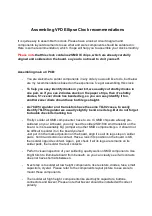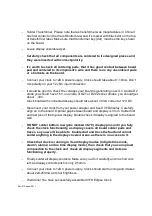
-
Solder Transformer. Please note that as transformer was manufactures in China it
has first contact on the the left bottom raw and it’s market with black dot on the top
of transformer label. Make sure that transformer key (dot) matches the key shown
on the board.
-
Leave display unsoldered yet.
-
Carefully check that all components are soldered to its designed places and
they were inserted with correct polarity.
-
It’s worth to check all soldering pads, that it has good contact between board
pad and soldered to it component’s wire and there is no any unsoldered pads
or shortcuts on the board.
-
Connect your clock to 12DC power supply. Clock should take about 7-10mA. Don’t
mix polarity on your 12v DC input connection
-
It would be good to check the voltages your board is generating now. On Anode D2
diode you should have +5V, on anode of DZ1 or DZ2 Zenner diodes you should get
about -30V.
Clock board with connected display should take about 7-8mA current at 12V DC.
-
Disconnect your clock from your power adapter and insert VFD display. Carefully
align on to the board. Optimal gap between board and display is 3 mm. Solder first
and last pins of the top raw display. Double check if display is aligned to the board
well.
-
DO NOT solder bottom raw (pins marked 36-70) display pins until you fully
check the clock functionality, as display covers all board solder pads and
traces, so you won’t be able to troubleshot and trace the fault and cannot
solder anything in the display covered areas, as there is no access to it.
-
Check that clock is running in its all display modes (4 digits time mode,
alarm1, alarm2, and no time display mode), than check that you can upload
composition to the clock and check all display segments and dots are
functioning properly.
-
Finally solder all display contacts. Make sure you do it carefully and no short cuts
left, as display contacts pitch is only 2.54mm.
-
Connect your clock to 12DC power supply. Clock should start running and it takes
about 220-250mA at its full brightness.
-
Well done! You have successfully assembled VFD Ellipse Clock.
Rev.01 August 2011




















